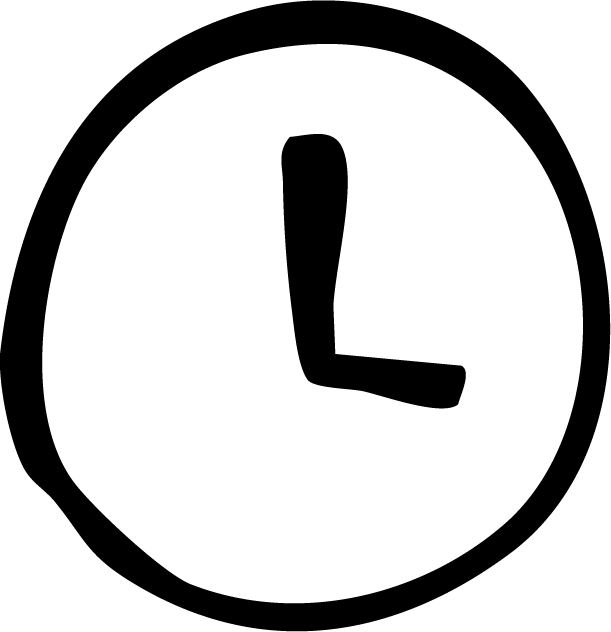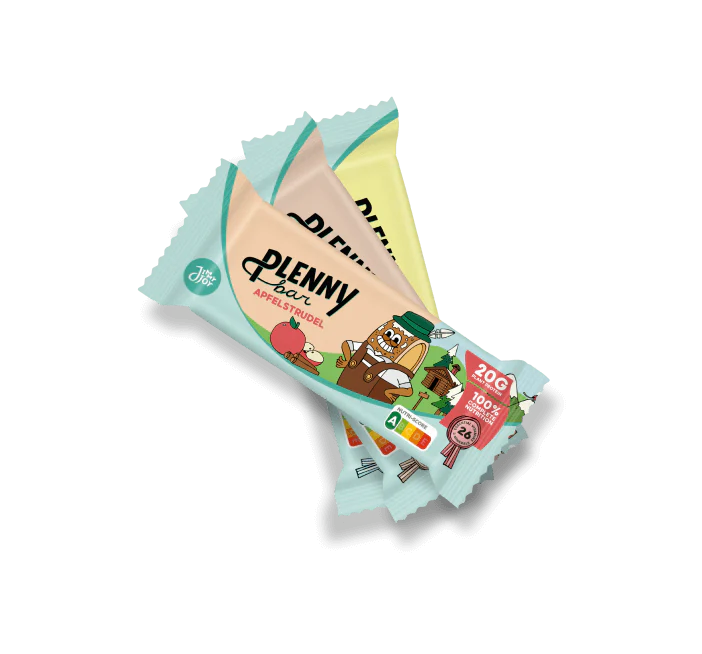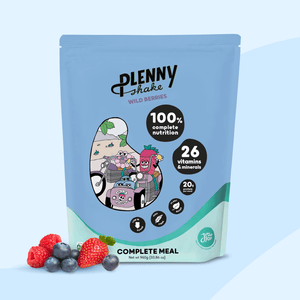Procrastination can be quite the hassle, and you know us: we’re not big on hassle. In fact, we’ve dedicated ourselves to making life as hassle-less as possible by creating healthy meals with a minimal impact on the environment. That’s why we’ve declared war on procrastination and made it our nemesis, our arch enemy. So better watch your back, procrastination - we're taking you down!

Did you know about 20% of Americans are chronic procrastinators, while the other 80% are simply occasional procrastinators (2)? There’s virtually no escaping it! To fight procrastination and its evil allure, we need to understand its mechanism: how it works, and how it keeps getting its hooks into us. Thankfully, science has looked into the subject - first of all to prove its harmful effect. Sure, sometimes postponing a task might actually be a smart move. For example, your mood or energy might be better the next day, making it easier (less of a hassle) for you to complete the task. And sometimes what may look like procrastinating is not actually always procrastinating. Time can be a powerful tool to help you make better decisions. It allows for better analysis and therefore better results.
Two American researchers, Dianne Tice (1) and her husband Roy F. Baumeister, conducted a study in the late 1990 in which they asked university students to observe their emotional state for one semester - some with a procrastinator profile, others not. At first, procrastinators felt happier, but as time went on, they felt more and more stressed and anxious, with more visits to doctors and poorer academic results than the non-procrastinators.
Chronic procrastination is therefore a non-rational strategy that brings little benefit in the short term, and some serious problems in the long term.
So, where does the desire to procrastinate come from, what triggers all this?
Procrastination is not a problem of lack of time or poor organisation skills, but rather strongly linked to our emotions. Procrastinators tend to give priority to their moods and feelings of the moment, so any complicated, boring, or time-consuming task is considered a disruptive element to their well-being (3). They fear mood swings and care more about ‘feeling good now’ than about solving the problem. They are constantly negotiating with themselves, looking for what will take the least amount of effort. Despite this, most feel a strong sense of guilt and anxiety as the to-do list keeps getting longer and longer...

Since the source of our procrastination is actually ourselves - in other words: the irrational management of our emotional state - this is where we need to dig deeper.
The tips
Deadlines
Setting simple deadlines allows you to better take ownership of your tasks, making them seem less of a threat to your emotional well-being. But hold it right there, buster! Don’t go planning too much too soon. You may be tempted to schedule your tasks for the upcoming weeks or even months, but if you fall behind on your planning it may discourage you and actually keep you from being productive. An example: ‘I must have done these two things before watching Netflix tonight’.
Positive association
Positive association consists of visualising the task ahead and linking it to positive feelings in order to convince ourselves that the task will not affect our mood (and maybe even make us feel - dare we say it - good...)
For example “I’m going to sort all my emails while listening to my favourite playlist”, or “I’m going to iron my laundry while drinking a Plenny drink and watching Friends”. This can also include a reward system, so the positive aspect that will provide you with the motivation to perform your tasks comes from the reward you’ve promised yourself afterwards. Treat yourself to something you love if you’ve completed a hard (or not so hard) task!

Above all, visualize the relief, satisfaction, and pride you’ll experience when you’ve completed the task.
The potential of the morning
Procrastination is one of those nasty little habits that is hard to break. Probably the best way to go about it is to tackle it first thing in the morning. The first 15 minutes after you wake up usually set the tone for the rest of the day, so try and set your mood before it is affected by other stimuli that are outside of your control (hunger, fatigue, snacking, smartphone).
For example: as soon as you wake up (even before getting up), read a motivational text for a few minutes. Prepare it the day before - the internet offers a lot of resources on this subject. Or motivate yourself out loud:
“Good morning superstar! Today you are going to crush your goals! You are motivated! You are excited! You are beautiful!”
Something like that. After you’ve motivated yourself, set out the tasks you want to perform. The secret? Don’t set the bar too high! A maximum of two tasks will make you want to do them quickly and do them well. Before leaving your room, establish in your head a plan of action for the day, a working state of mind. Or better yet: write it down. Do this, and we guarantee you you’ll notice that external stimuli will have less effect on you!

Instead of concentrating on two tasks, you can even focus on a single task. In his book Eat that frog (4), Brian Tracy advises to do the most important and difficult task first - first thing in the morning. It shouldn't take you more than 4 hours. If the task is too daunting to complete within those 4 hours, divide it into smaller, more manageable tasks. Doing the most unpleasant thing before lunch will give you an endorphin-boost for the rest of the day!
Not a morning person? Not a problem! Do this priority task at a time when you feel most energetic and focused.
And how can Jimmy Joy help you with that?
With our easy-to-prepare and nutritionally complete food, there are literally no more excuses to skip a meal. Being too lazy or busy to prepare a healthy meal is no longer a valid reason! Each of our meals will provide you with the vitamins and energy you need to be productive for the rest of your day.
Tabula Rasa
How we begin our day plays an enormous part in how we will experience the rest of it. Our mind is a blank canvas ready to be filled with stimulating and motivating thoughts, ideas, and feelings, but it can just as easily be filled with external stimuli and distractions. So let’s use this to our advantage and actively set ourselves up to perform the tasks we need to perform for the day!
Sources
(1) BYU (Brigham young university), Family, Home and Social Sciences, psychology, Dianne Tice
https://psychology.byu.edu/directory/dianne-tice
(2) American Psychological Association, Psychology of Procrastination: Why People Put Off Important Tasks Until the Last Minute, Five questions for Joseph Ferrari
(3) Wiley Online Library, Procrastination and the Priority of Short Term Mood Regulation: Consequences for Future Self, Fuschia Sirois Timothy Pychyl, 07 February 2013
(4) Todoist, productivity methods, Eat the frog, Becky Kane
 Everything You Need In One Meal
Everything You Need In One Meal
 Stay Full For 3-5 Hours
Stay Full For 3-5 Hours













 Product added to cart
Product added to cart





